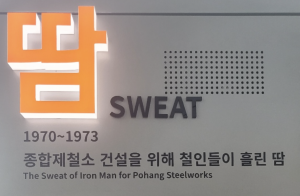Pohang: POSCO Museum
Photo essay of wall text of POSCO Museum of Pohang

Photo essay of wall text of POSCO Museum of Pohang

XXX

The actors that the article refer to is the healthcare workers, those who have experienced this violence. Those who feel that their perogitive to help others (and to do their jobs) is greater than 'offering themselves up' to the people of these tribes who feel that they are doing more harm then good. Another actor is people from the villages who describe what has happened. The discovery of these murdered healthcare workers and their opinions on the Ebola workers- they do not want them near their tribes at all. Outside worldwide coordinators also comment on the tradegies of the death and the affects it has on the treatment of Ebola. The Red Cross is also an actor, their workers were afraid/chased by locals due to wearing "Ebola gear".
I found hearing the patients' stories and the doctor's effort to help others even though there was no resources to be most persuasive and compelling because despite the fact that both patient and doctor knew that long term care was slim they both tried to have hope in treatment, the patient's prayed for recovery, while the doctors pulled strings to get patients who really needed the care or the shelter to be a priority. I found it inspiring that even in a messed up system both parties tried to make the best of the situation.
The policy applies to victims, first responders (fire,police and EMS) that are/were directly affected by the events of 9/11.
Their membership consists of scientists, healthcare professionals and doctors.
THe book has been referenced by the author in other papers, but not anywhere else accessible by the internet.
The data for the rport was collected for the end of 2005 to the beginning of 2006.